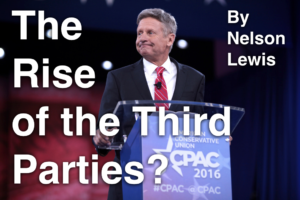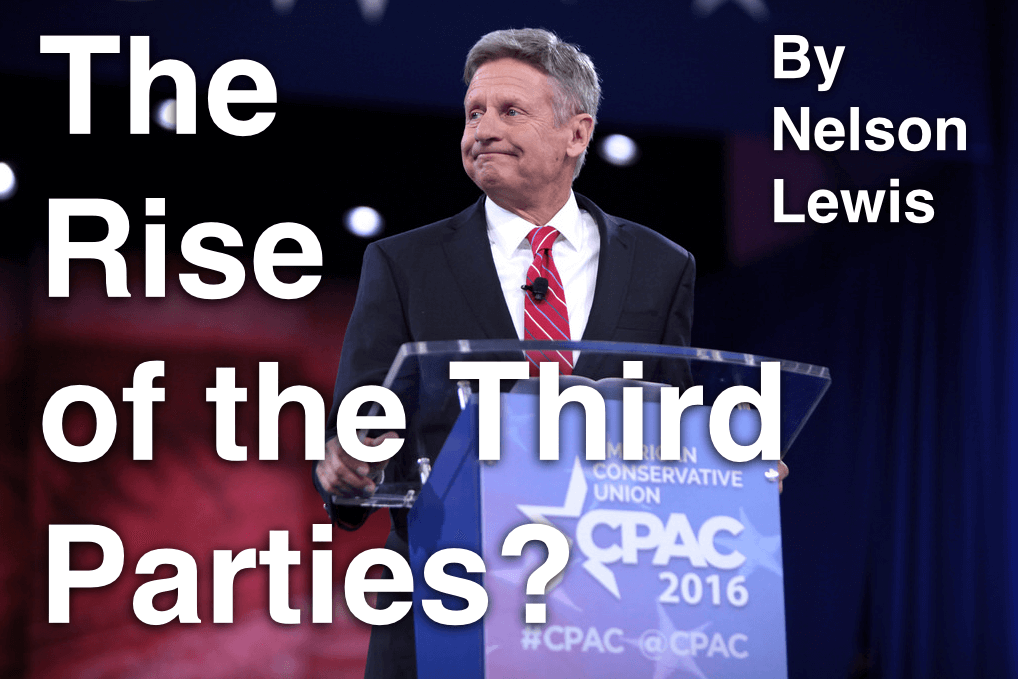 Since 1853, every US President has been either a Democrat or Republican, and these two parties hold undisputed dominance over modern-day American politics. Of course, there have been third parties who have made a significant stir in previous presidential elections, such as Ralph Nader, George Wallace and Theodore Roosevelt. While it seems most likely that either Hillary Clinton or Donald Trump will win the election this November, thanks to the division that’s characterized the Democratic and Republican primaries this year, third-party candidates have started to cause a stir.
Since 1853, every US President has been either a Democrat or Republican, and these two parties hold undisputed dominance over modern-day American politics. Of course, there have been third parties who have made a significant stir in previous presidential elections, such as Ralph Nader, George Wallace and Theodore Roosevelt. While it seems most likely that either Hillary Clinton or Donald Trump will win the election this November, thanks to the division that’s characterized the Democratic and Republican primaries this year, third-party candidates have started to cause a stir.
Two candidates, Jill Stein of the Green Party and Gary Johnson of the Libertarian Party, have been slowly gaining media attention. Unlike Stein, whose political experience is limited to activism and unsuccessful runs for office, Johnson’s earned his stripes as governor of New Mexico. So far this year, he’s gone rock climbing with Samantha Bee, podcasting with Politico and sat down several times with the Washington Post. To get into the presidential debates alongside Trump and Clinton, he’s going to need 15 percent in the polls, which this year could very well happen.
A new poll from Morning Consult found Johnson scoring 10 percent in a trial heat with Clinton and Trump. Only 31 percent of voters were able to correctly identify him as a “politician”, and only 18 percent even knew he was running for President or served as governor of New Mexico. Whether he was identified as “independent” or “Libertarian”, Johnson’s 10 percent support remained solid. According to the description, however, his base would shift slightly, with conservative and liberal voters equally supporting an “independent” Johnson and slightly more liberal than conservative voters supporting a “Libertarian” Johnson. These are small numbers, but compare this to his 2012 bid for the White House, in which he never polled above 5 percent and ultimately won just 1 percent of the final vote.
Johnson is a self-made man, who worked as a door-to-door handyman to pay for college, then founded Big J Enterprises, which became one of the largest construction companies in New Mexico. He entered politics in the 1990s, serving as governor of New Mexico under a low-tax libertarian platform. He’s been active in education reform, the decriminalization and legalization of marijuana, free enterprise, limited government and foreign non-interventionism. His running mate is Bill Weld.
I doubt that Gary Johnson will make it to the White House. He’s a third-party candidate, which don’t typically do well; it’s very possible that he could poll high enough to take part in the debates later this year, but debate moderators would most likely not pay much attention to him. Nonetheless, his success could mark the start of third-party candidates gaining more traction, especially as Bernie Sanders and Donald Trump have divided voters and politicians in their respective parties.
